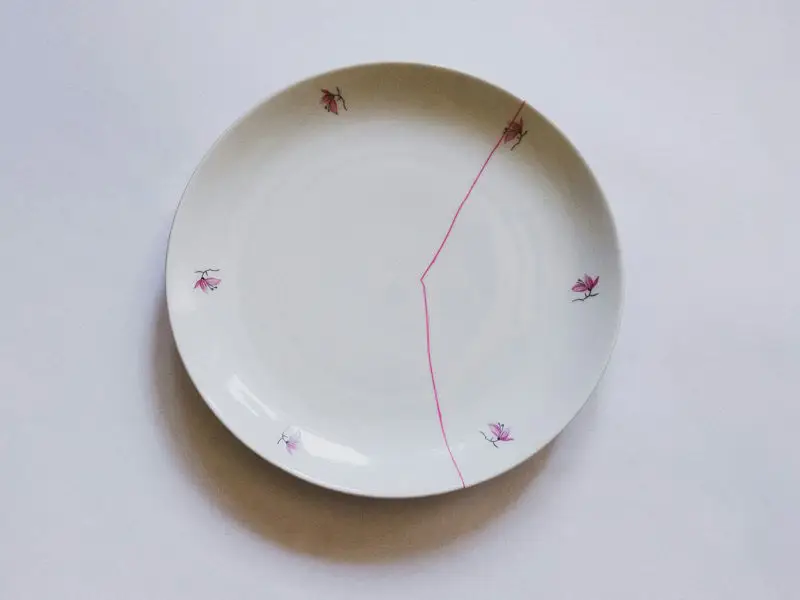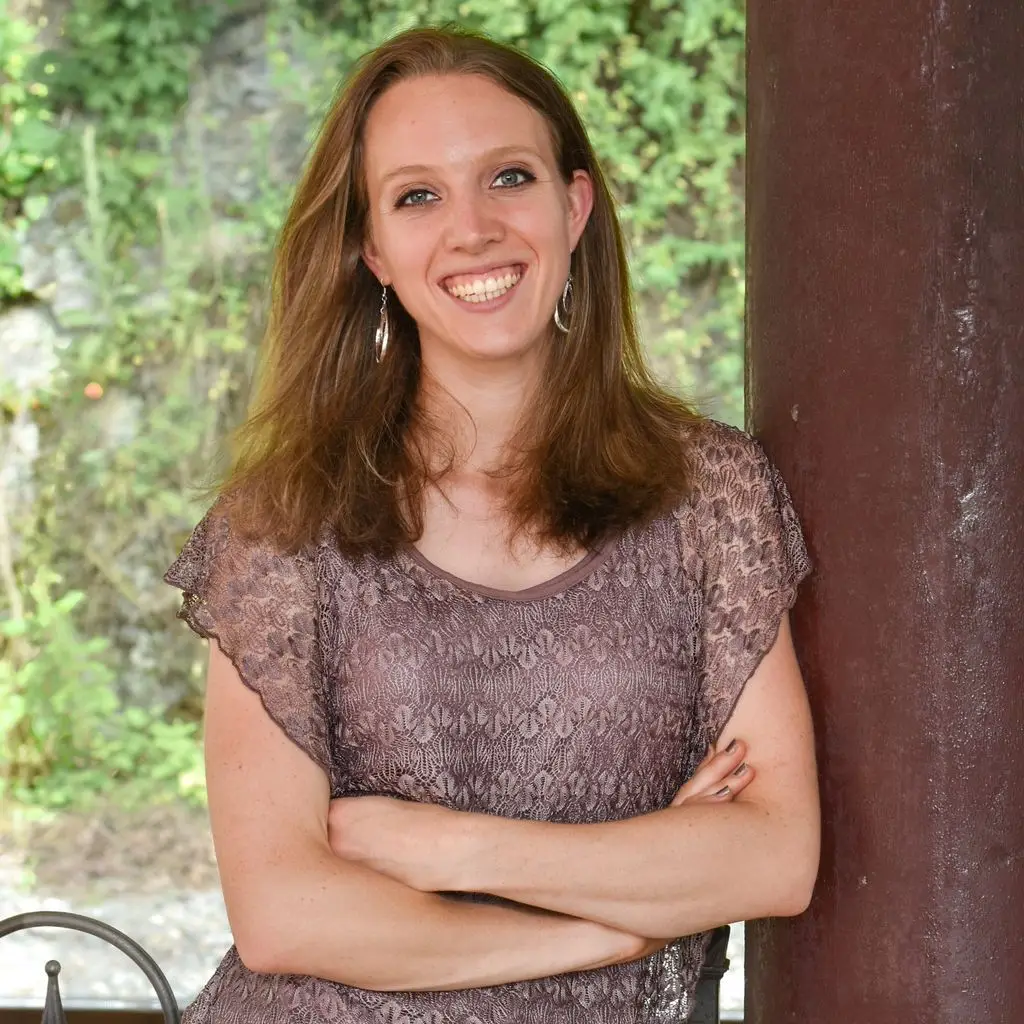Brave Enough to be Imperfect

This post was originally published on The Road to Brave.
I turned the little booklet over in my hands, drawing my feet up cross-legged so I could perch better on my bed. The word on top of the booklet was Perfectionism, a big idea my parents were trying to help me break down and understand. I mean, sure, I was nervous a lot. Things had to be right. Handwriting. Schoolwork (HEAVEN forbid I not get an A, because I didn’t want to find out what would happen if the world ended.) But I wasn’t sure what all that had to do with perfectionism.
I was eight years old.
It’s pretty incredible how early we can pick up the idea that we are what we do and that performance makes us acceptable. It makes us belong. It makes us worthy.
As it turned out, there were slightly deeper roots to my perfectionism, tucked into an anxiety disorder I’d have to face later in life. But even as a kid, I had ideals for myself that were…just…a little…idealistic.
Unhealthily so, as I eventually learned (the hard way, cause that’s how I do most things).
The future of education in your inbox.
Get productivity tips, commentary, and Unbound updates sent to you!
But as it turns out, regardless of whether or not you’re someone who battles with perfectionism and performance (or are close to someone who does), there is something about this idea that almost everyone wrestles with. Something that tastes bitter in our mouths and even more so going down. Something that leaves us with bruises and sometimes scars as a result of the annoyingly honest fact that
we are imperfect, and that’s okay.
Some people accept the idea easier than others, but not always in a healthy way. There’s a passive, blasé yielding to imperfection that doesn’t do anyone any good. Others fight this tooth and nail. We can’t be perfect but we can darn well get close. But refusing to accept our imperfection is like the slow chipping-away of a wall. Eventually, those cracks cause issues.
At some point or another, we all have to come to terms with the idea that we aren’t perfect. We’ll never be perfect. And that inherently comes with pain or disappointment or failure. We let people down. We make mistakes at work. We mess up at school. We hurt those we love. We invest in an unwise relationship. We choose an unhealthy coping mechanism. Whatever the struggle, the fact that we are indeed human eventually comes around to snap at us (or bite hard).
Ouch.
Perfectionist or not, that’s a tough pill to swallow. I think there’s something in humanity that knows what we were created for—that longs for the perfection of Eden and an uninterrupted relationship with the One we were created to love. But for now, we’ve got to face the fact that we aren’t perfect, and that’s hard.
But you want to know something beautiful? Accepting imperfection is a really, really brave thing if it’s done in grace.
There are two ways we accept imperfection. One is passivity. One is grace.
Passivity says we’re fine as we are.
Grace says we’re loved as we are.
When we passively accept our imperfections, we say, “I’m fine as I am.” Nobody should expect us to change. Why would we? Nobody’s perfect, so we’re good as we are. If it acknowledges a mistake has been made, it accepts it as the status quo of the way things are. That’s that. We stay where we are.
Grace, on the other hand, says, “I’m loved as I am.”
There is a world of difference between those two statements. When we accept our imperfections with grace, we say, “I am loved as I am.” And genuine love always pushes us to seek something better. To serve better. To love harder.
Grace means we accept ourselves as we are and we expect God to change us. We don’t stay where we are. How can we, when we’re loved so deeply? Of course we want to grow. To change. To become more and more of who God created us to be. We cooperate with Him in that (Hebrews passage on discipline). And here’s the beautiful thing. When we accept our imperfection with grace, we do so only because of the grace God has given us. We can offer ourselves grace because God did first.
Second, passivity festers.
Grace heals.
When we passively accept our status as imperfect humans, there is no healing in us or in our relationships. Mistakes fester because there is nothing to push us forward. If there is no hope of something better, why would we try? We’ll hurt ourselves and others. Oops. Oh well.
When we’re passive, we don’t treat our wounds or those we cause. It’s like tripping and roughing your knees up on the asphalt and then just leaving it, hoping it’ll get better eventually. Maybe the pain will disappear, but the scars won’t.
Grace, on the other hand, brings healing to us and our relationships. Grace allows us to acknowledge the mistakes and pain in all their ugliness and offer them to God for His healing in our lives. We can seek forgiveness from those we’ve wronged and from God. Yes, we’re imperfect, and yes, we hurt each other as humans (ugh!), but we can seek forgiveness and peace because that’s what God calls us to, as far as it depends on us. Acknowledging that we’ve hurt others and hurt ourselves always pushes us forward to healing when done in grace.
Third, passivity digs us deeper into a rut.
Grace moves us forward.
When we passively accept imperfection, we don’t move forward. We roll over. Because passivity says we’re fine as we are, and that no further steps are required, we simply work ourselves deeper and deeper into the ruts we’re in. We make mistakes and those things hurt and, oh well. That’s just how things are. That’s just how I am.
Grace, on the other hand, isn’t rolling over—it’s moving forward. Because grace says we’re loved as we are, and that our God is Immanuel, God with us, we can grab His hand and climb up out of the ruts. We make mistakes and those things hurt and, wow, we see so much of God’s grace in our lives as He helps us to get back up and fight for healing and move forward. We don’t just sit there and take a beating—we keep advancing.
Life as imperfect humans means we still all have scars. When we’re passive about that, the scars are just battle marks of a broken world. That’s it. But when we accept imperfection with grace, those scars tell stories of God’s faithfulness and hand and power and healing.
Everyone has to reckon with the fact that we’re imperfect people. When we just passively accept that, it doesn’t push us closer to Christ. But acknowledging our mistakes and failures, and reflecting on our lessons, and choosing to get up and fight again, is a thing that results in grace. We offer grace to others because we know they’re human, and they’re imperfect. And we offer grace to ourselves—grace that brings us closer to Christ, not a weak passivity that doesn’t expect us to change.
The brave choice is not a blasé, passive acceptance. It is an acceptance that says, “Yes, I’m imperfect and yes, that hurt. And I will keep going. I see the journey God is leading me on. I see that He is at work. I choose to accept His grace and get back up and keep going, because His love makes me brave.”
This week, may we be brave enough to be imperfect.

Victoria Schurter is the VP of Content and Development for Unbound. An Unbound graduate, Victoria has served in a variety of roles including student leadership, coaching, and in the Business and Leadership program. She is passionate about equipping young adults to recognize their potential, to know God, and make Him known in daily life.
When she’s not working on an Unbound project, you can find her scribbling on a novel, playing a favorite instrument, riding horses, watching a sunset, or dreaming up some new adventure that absolutely includes the Pacific coastline. One of the best parts of her world is walking alongside her fellow Unbound students as they make an eternal impact in their generation.


